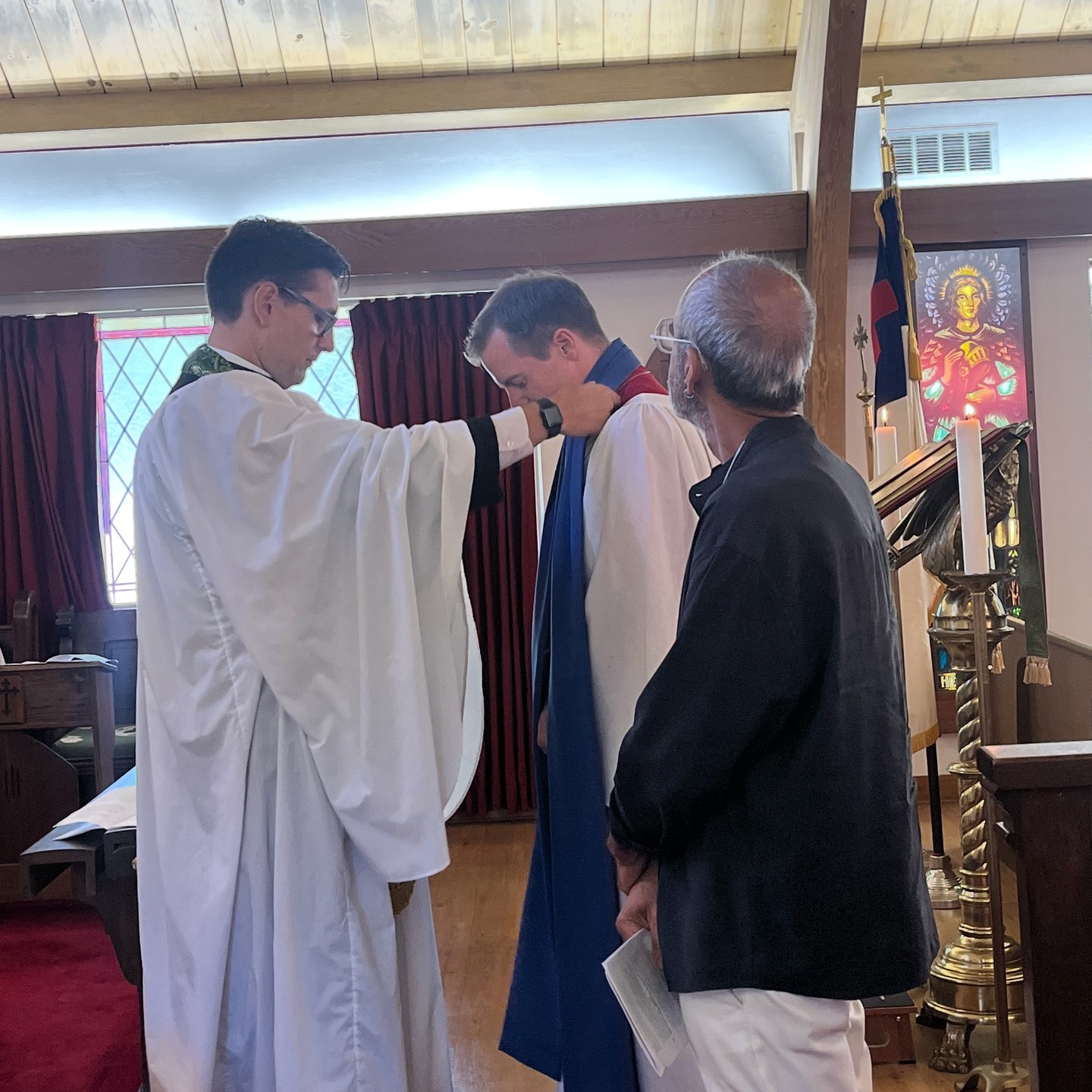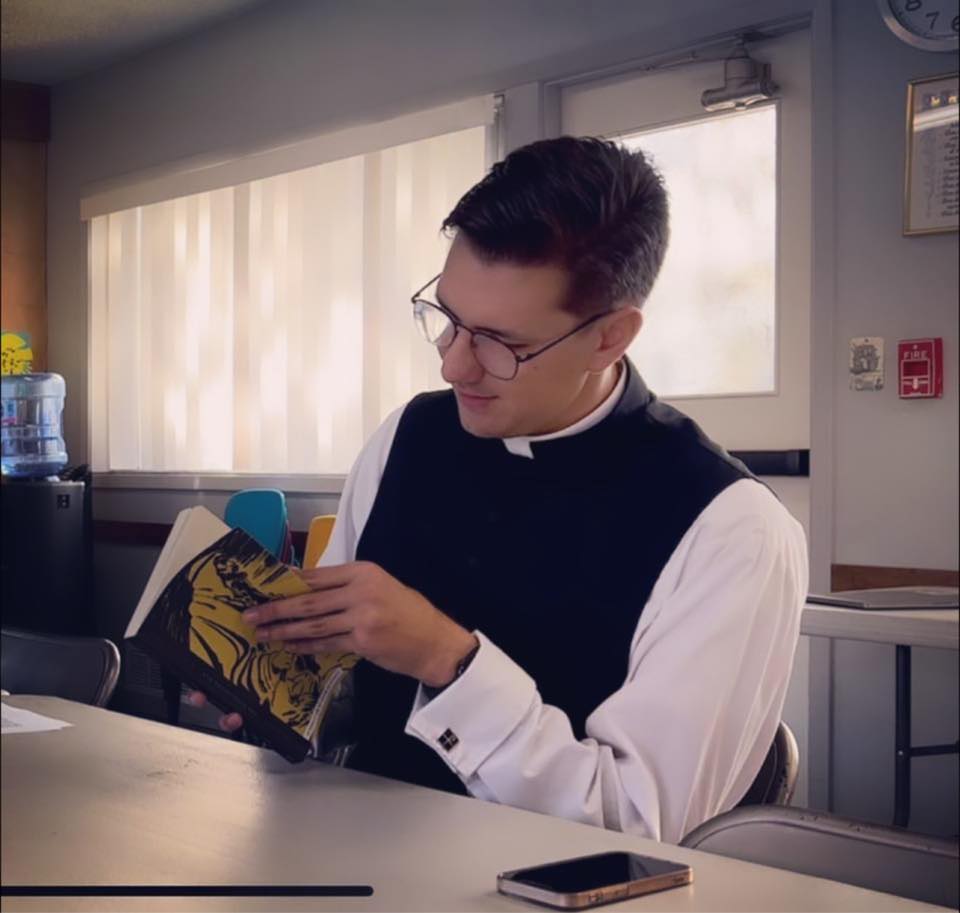On Sunday, September 15, Saint Paul’s installed Mr. Daniel de Villiers as our Chief Lay Reader during his admission ceremony, presented by Vestryman Sukhjit Johal.
Lay Readers are entrusted to assist in the conduct of public worship in the Sanctuary.
Directions for Lay Readers and Lectors
We follow the traditional forms prescribed in the 1928 Book of Common Prayer for the public reading of Holy Scripture. These customs preserve reverence, clarity, and consistency within our liturgy.
Lay readers are asked to use the forms prescribed in the rubrics of the 1928 BCP, especially:
- Morning Prayer: pp. 9–10
- Evening Prayer: pp. 25–26
- Holy Communion: p. 70
The summary below provides the standard formulas for all readings.
The Readings
The following sections of Scripture fall under this form:
- The Old Testament reading at Holy Communion
- The First Lesson in the Daily Office
- The Second Lesson in the Daily Office
How to Introduce a Reading
Use the following formula:
“Here beginneth the (n) chapter of (Book Title), beginning at the (n) verse.”
Please use the exact title of the book as it appears in the lectern Bible.
Examples include:
- The First Book of Moses, commonly called Genesis
- The Book of the Prophet Jeremiah
- The First Book of Kings
- The Book of Proverbs
- The Epistle of St. James
- The Gospel According to St. John
- The Acts of the Apostles
- The Revelation of St. John the Divine
Concluding a Reading
At the end of the reading, conclude with the proper ending:
- “Here endeth the First Lesson.”
- “Here endeth the Second Lesson.”
The Psalm for the Day
If the Psalm is Read
At our 10:30 a.m. service it may be read or sung.
Announce the Psalm in this form:
“The portion of the Psalter appointed for today is Psalm (n), found on page (n) of the Book of Common Prayer. Let us read responsively by half-verse (optional: breaking at the asterisk).”
If the Psalm is Sung
At sung services:
“The portion of the Psalter to be sung today is Psalm (n), found on the insert in your bulletin.”
The Gloria Patri
Every Psalm concludes with the Gloria Patri—
- said responsively when the Psalm is read,
- sung when the Psalm is sung.
The Epistle at Holy Communion
Begin the Epistle with:
“The Epistle is written in the (n) chapter of (Book Title), beginning at the (n) verse.”
Again, use the exact biblical book title as printed in the King James Bible.
Concluding the Epistle
- “Here endeth the Epistle.”
- The response “Thanks be to God” is not part of the 1928 BCP.



Leave a Reply